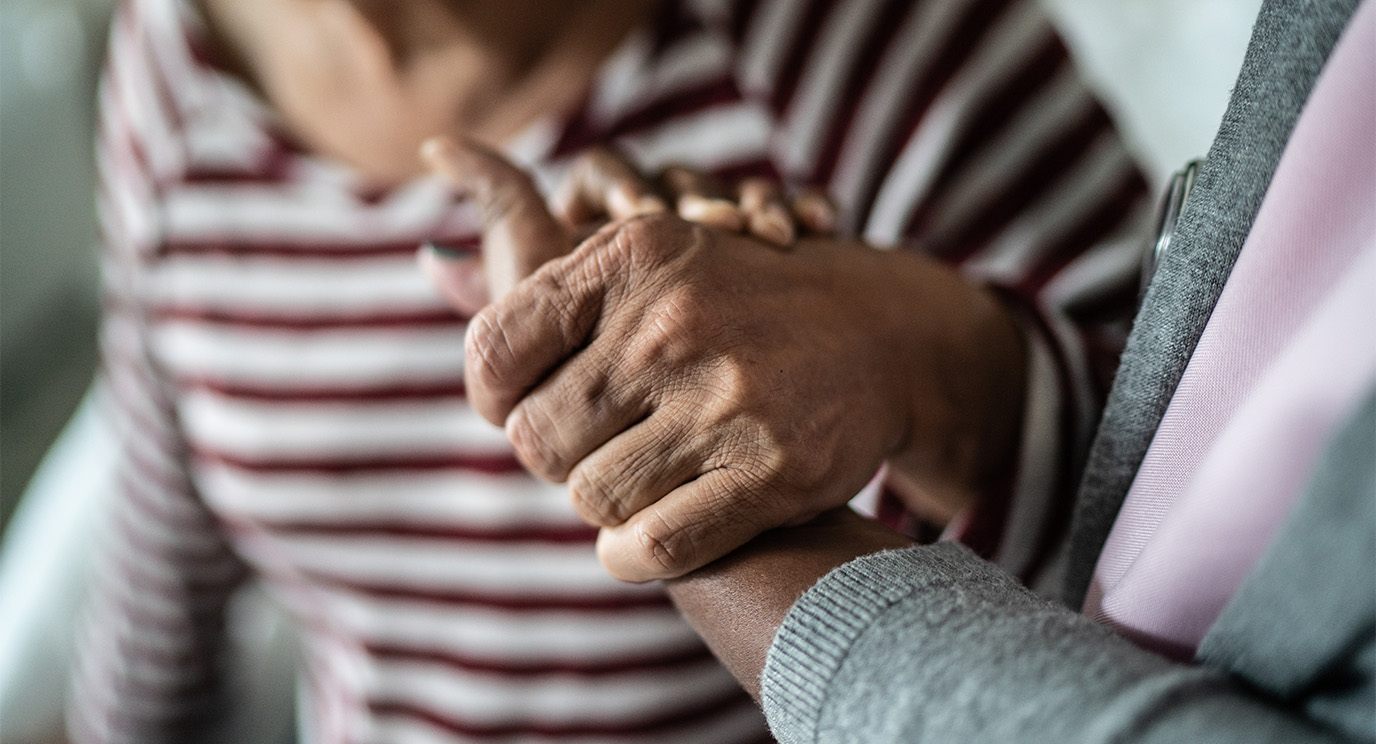- Diseases
- Acoustic Neuroma (14)
- Adrenal Gland Tumor (24)
- Anal Cancer (66)
- Anemia (2)
- Appendix Cancer (16)
- Bile Duct Cancer (26)
- Bladder Cancer (68)
- Brain Metastases (28)
- Brain Tumor (230)
- Breast Cancer (718)
- Breast Implant-Associated Anaplastic Large Cell Lymphoma (2)
- Cancer of Unknown Primary (4)
- Carcinoid Tumor (8)
- Cervical Cancer (154)
- Colon Cancer (164)
- Colorectal Cancer (110)
- Endocrine Tumor (4)
- Esophageal Cancer (42)
- Eye Cancer (36)
- Fallopian Tube Cancer (6)
- Germ Cell Tumor (4)
- Gestational Trophoblastic Disease (2)
- Head and Neck Cancer (6)
- Kidney Cancer (124)
- Leukemia (344)
- Liver Cancer (50)
- Lung Cancer (288)
- Lymphoma (284)
- Mesothelioma (14)
- Metastasis (30)
- Multiple Myeloma (98)
- Myelodysplastic Syndrome (60)
- Myeloproliferative Neoplasm (4)
- Neuroendocrine Tumors (16)
- Oral Cancer (100)
- Ovarian Cancer (170)
- Pancreatic Cancer (164)
- Parathyroid Disease (2)
- Penile Cancer (14)
- Pituitary Tumor (6)
- Prostate Cancer (144)
- Rectal Cancer (58)
- Renal Medullary Carcinoma (6)
- Salivary Gland Cancer (14)
- Sarcoma (236)
- Skin Cancer (296)
- Skull Base Tumors (56)
- Spinal Tumor (12)
- Stomach Cancer (60)
- Testicular Cancer (28)
- Throat Cancer (90)
- Thymoma (6)
- Thyroid Cancer (98)
- Tonsil Cancer (30)
- Uterine Cancer (78)
- Vaginal Cancer (14)
- Vulvar Cancer (18)
- Cancer Topic
- Adolescent and Young Adult Cancer Issues (20)
- Advance Care Planning (10)
- Biostatistics (2)
- Blood Donation (18)
- Bone Health (8)
- COVID-19 (362)
- Cancer Recurrence (120)
- Childhood Cancer Issues (120)
- Clinical Trials (626)
- Complementary Integrative Medicine (24)
- Cytogenetics (2)
- DNA Methylation (4)
- Diagnosis (230)
- Epigenetics (6)
- Fertility (64)
- Follow-up Guidelines (2)
- Health Disparities (14)
- Hereditary Cancer Syndromes (124)
- Immunology (18)
- Li-Fraumeni Syndrome (8)
- Mental Health (118)
- Molecular Diagnostics (8)
- Pain Management (62)
- Palliative Care (8)
- Pathology (10)
- Physical Therapy (18)
- Pregnancy (18)
- Prevention (898)
- Research (390)
- Second Opinion (74)
- Sexuality (16)
- Side Effects (604)
- Sleep Disorders (10)
- Stem Cell Transplantation Cellular Therapy (216)
- Support (404)
- Survivorship (322)
- Symptoms (184)
- Treatment (1774)
Strengthening relationships during the cancer journey
4 minute read | Published February 13, 2013
Medically Reviewed | Last reviewed by an MD Anderson Cancer Center medical professional on February 13, 2013
"Love recognizes no barriers. It jumps hurdles, leaps fences, penetrates walls to arrive at its destination full of hope."
- Maya Angelou
While the masses are out shopping for long-stem roses, many of our patients and their loved ones find themselves preoccupied with MRI results, blood counts and chemotherapy.
Unfortunately, cancer doesn't only affect the individual who is diagnosed. Relationships are impacted, with spouses, partners, and significant others of patients facing many challenges and hurdles throughout the cancer journey.
Communication concerns
As a couple adapts to a cancer diagnosis, it's important to understand that old communication patterns may no longer serve the same purpose. Couples often utilize very different coping styles to handle the diagnosis. Some openly express their emotions, while others reflect on them internally.
It's often necessary to adjust your personal style to accommodate your partner. Transparency and open communication can help partners gain an understanding of the needs of their significant other, including physical assistance, emotional support or space within the relationship.
Following a diagnosis, couples often find themselves spending a more time together -- at home, inpatient hospital stays or appointments within the clinic.
It's important to continue to set aside alone time for reflection, self-care and needed space away from their partner. For the caregiver, self-care, rest and attention to one's own needs can be one of the best ways to ensure that their partner's needs are ultimately met.
Alone time for both partners can help to decrease irritability and conflict. It also can help increase appreciation of time spent together.
Role change
When someone is diagnosed with cancer, roles within a relationship often change drastically. A person may transition from primary breadwinner to someone who requires 24-hour care. Or an equal partner in the relationship may become a full-time caregiver.
These role changes aren't just difficult for the individual; they can place additional stressors on the relationship. Honesty and flexibility may help ease the transition and facilitate a supportive environment for both partners.
Patients and their partners who are struggling with this transition might benefit from attending a support group to process and problem solve with others going through similar experiences. MD Anderson's general cancer support group is open to all patients and family members, regardless of their cancer diagnosis. It's a great place to start off.
Intimacy issues
Many medications used to treat cancer, as well as the diagnosis itself, can disrupt intimacy and sexual functioning. Adjusting to these changes can be difficult for patients and their partners.
Ask your physicians or nurse about medications and treatments that may help to alleviate these concerns.
Emotional intimacy can sometimes help to retain closeness between partners while sexual activity is infrequent or impossible. Kissing, touching, hugging and holding hands can help to maintain intimacy between partners. Symbolic acts like writing letters and poetry can serve the same purpose.
Financial concerns
A cancer diagnosis can become a financial burden on both the patient and partner. Patients are often unable to work through their treatments, and caregivers may take time off from work to help care for their loved one.
It can be difficult for couples to maintain financial stability with the added pressure of medical bills and insurance co-payments. Added transportation and housing costs can cause more stress for patients living out of the immediate area.
Many people at MD Anderson are available to help alleviate some of this stress:
- Business office representatives can discuss options for helping manage the cost of treatment, including government programs like Medicaid or Pre-Existing Condition Insurance Plans (PCIP). Contact your individual clinic for a referral to the appropriate business office representative.
- Pharmacy reimbursement specialists (713-792-6125) can help patients identify co-payment and medication assistance programs to provide additional financial relief.
- Social work counselors can refer you to community resources and, if appropriate, government disability benefit programs that can provide financial assistance.
Moving forward
Relationship concerns and stresses are normal, common and susceptible to change. The good news is there are resources available if you need assistance.
As you and your partner celebrate this Valentine's Day, keep in mind that no matter the barriers that are placed in front of you, they're easier to manage when you have a loved one to help.
If you would like more information on this subject, contact the Department of Social Work at 713-792-6195 or ask your nurse or doctor to speak with a social work counselor who can assist you and your partner with counseling needs while at MD Anderson or make appropriate referrals for any additional counseling needs you may have.
Related Cancerwise Stories

Relationship concerns and stresses are normal, common and susceptible to change. The good news is there are resources available if you need assistance.
Sarah Hines
Social work counselor





